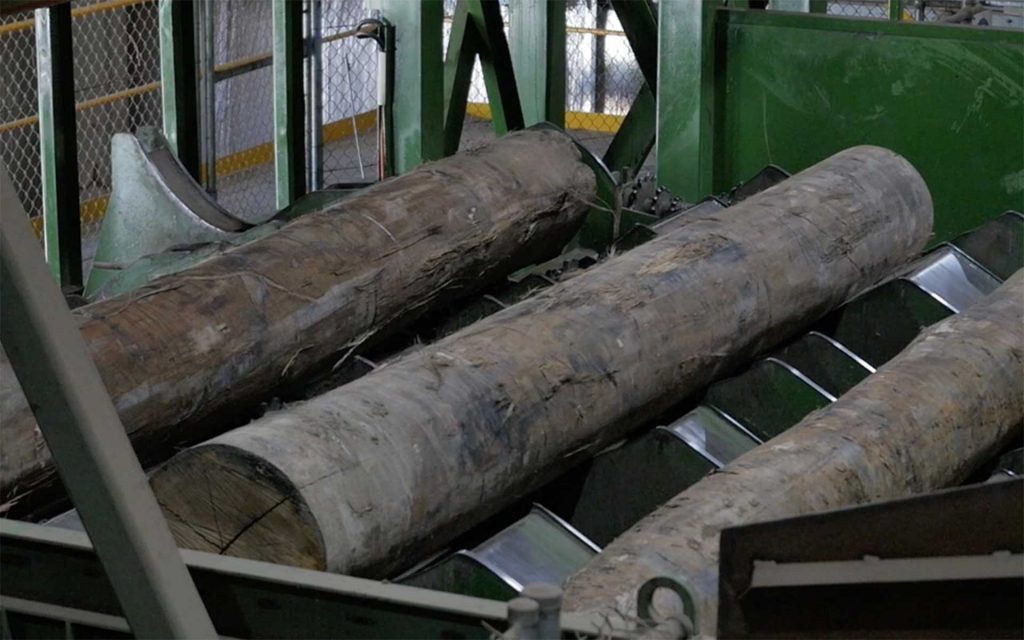Biodiesel and bitumen to be made from wood waste
Turning wood waste into biodiesel and bitumen sounds far fetched, but could soon become a reality under a plan by building and construction supplier Boral.

Boral today announced a plan to explore the viability of turning wood waste into biodiesel, bitumen and asphalt. The waste will be obtained from its six hardwood timber mills on the New South Wales north coast, which as much as 50,000 tonnes each, every year.
ARENA is supporting the project, providing $500,000 towards a $1.2 million feasibility study at Boral’s Heron’s Creek timber mill near Port Macquarie.
The study will include a trial of the technology at demonstration scale in Spain, initial design works for the full-scale plant, exploration of the regulatory challenges and development of the business case.
If the 12 month study is successful, Boral aim to scale the pilot up to convert 50,000 tonnes of sawmill waste into transport-grade biodiesel and bitumen. As Australia’s largest building and construction supplier, they use a lot of both.
Steve Dadd, Executive General Manager of Boral Timber, said the high-grade diesel and bitumen produced at the proposed biorefinery could meet 15 per cent of its total needs, while capitalising on a resource which is currently wasted.
“We have to do a lot more and value the whole log,” Steve Dadd said.
He describes Boral’s philosophy of respecting the hardwood resources that are processed at six of its seven NSW mills, seeing the trial as a step in the journey to: “cherish the resource, take all of that biomass and use every skerric of it.”
Boral’s renewable diesel and asphalt plan was developed to address three major operational challenges. The first is the enormous amount of leftover biomass from the timber industry going to waste and low value uses. “The industry economics can’t support all that waste.” he said.
The second is the rising cost of energy. “The cost of gas, electricity and eventually diesel and petrol will be a challenge for industry generally, not just for Boral,” he said.
The third challenge Dadd identifies is environmental. “Unless we do something about global warming and move to more sustainable energy uses, we’ve potentially got a serious problem,” he said.
ARENA is supporting Boral to convert its significant volumes of timber waste to valuable biodiesel and asphalt products, which they use a lot of.
If the study is successful, Boral plan to scale the project up to a commercial scale plant which could process 50,000 tonnes of biomass annually – roughly equivalent to the quantity of annual wood waste leftover by the largest timber mill.
Boral projects that volume of timber residues should create approximately 16 million litres of diesel and 8,000 tonnes of bitumen.
“If we get the processes right, it could be very efficient,” he said.
Using approximately 100 million litres of diesel annually across its truck fleet, the biodiesel created would represent a significant reduction in fuel costs. The renewable fuel will be high quality, with potential to power modern diesel cars as well as the fleet of large trucks.
Referring to NSW Government research that shows as much as one million tonnes of surplus biomass could available to be turned into renewable fuel every year, Steve Dadd predicts a bright future for the biofuel industry.
“That could be the feedstock for a well-scaled bioenergy industry. It’s a real opportunity to take advantage of that surplus biomass and convert it into very high value products.
ARENA CEO Ivor Frischknecht said the project is one example of Australian businesses embracing renewable energy.
“Bioenergy is on the rise. This new technology could pave the way for Boral to reduce its reliance on diesel and bitumen derived from fossil fuels, and utilise waste products left over from production processes,” Ivor Frischknecht said.
He explained, “While today bioenergy only makes up a small part of Australia’s energy mix, that is changing as major businesses embrace renewables to reduce costs and lighten their environmental footprint.
This has benefits for industries currently dependent on fossil fuels: “Renewable liquid fuels provide the best opportunity to decarbonise heavy transport sectors, including aviation, shipping and trucking, which are difficult to electrify,” he said.
“We hope Boral’s trial is successful and leads other companies to build biorefinaries to turn waste materials into valuable products.”
LIKE THIS STORY? SIGN UP TO OUR NEWSLETTER

ARENA